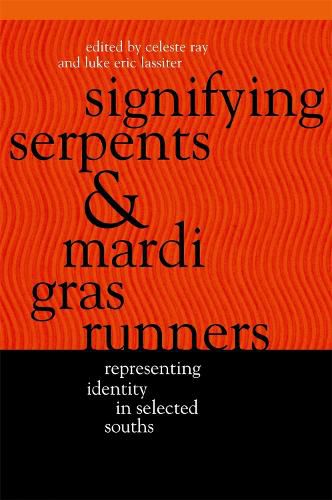Readings Newsletter
Become a Readings Member to make your shopping experience even easier.
Sign in or sign up for free!
You’re not far away from qualifying for FREE standard shipping within Australia
You’ve qualified for FREE standard shipping within Australia
The cart is loading…






These case studies explore how competing interests among the keepers of a community’s heritage shape how that community both regards itself and reveals itself to others. As editors Celeste Ray and Luke Eric Lassiter note in their introduction, such stakeholders are no longer just of the community itself, but are now often
outsiders –tourists, the mass media, and even anthropologists and folklorists.
The setting of each study is a different marginalized community in the South. Arranged around three themes that have often surfaced in debates about public folklore and anthropology over the last two decades, the studies consider issues of representation, identity, and practice. One study of representation discusses how Appalachian Pentecostal serpent handlers try to reconcile their exotic popular image with their personal religious beliefs. A case study on identity tells why a segment of the Cajun population has appropriated the term
coonass,
once widely considered derogatory. Essays on practice look at an Appalachian Virginia coal town and Snee Farm, a National Heritage Site in lowland South Carolina. Both pieces reveal how dynamic and contradictory views of community life can be silenced in favor of producing a more easily consumable vision of a
past.
Signifying Serpents and Mardi Gras Runners offers challenging new insights into some of the roles that the media, tourism, and charismatic community members can play when a community compromises its heritage or even denies it.
$9.00 standard shipping within Australia
FREE standard shipping within Australia for orders over $100.00
Express & International shipping calculated at checkout
These case studies explore how competing interests among the keepers of a community’s heritage shape how that community both regards itself and reveals itself to others. As editors Celeste Ray and Luke Eric Lassiter note in their introduction, such stakeholders are no longer just of the community itself, but are now often
outsiders –tourists, the mass media, and even anthropologists and folklorists.
The setting of each study is a different marginalized community in the South. Arranged around three themes that have often surfaced in debates about public folklore and anthropology over the last two decades, the studies consider issues of representation, identity, and practice. One study of representation discusses how Appalachian Pentecostal serpent handlers try to reconcile their exotic popular image with their personal religious beliefs. A case study on identity tells why a segment of the Cajun population has appropriated the term
coonass,
once widely considered derogatory. Essays on practice look at an Appalachian Virginia coal town and Snee Farm, a National Heritage Site in lowland South Carolina. Both pieces reveal how dynamic and contradictory views of community life can be silenced in favor of producing a more easily consumable vision of a
past.
Signifying Serpents and Mardi Gras Runners offers challenging new insights into some of the roles that the media, tourism, and charismatic community members can play when a community compromises its heritage or even denies it.